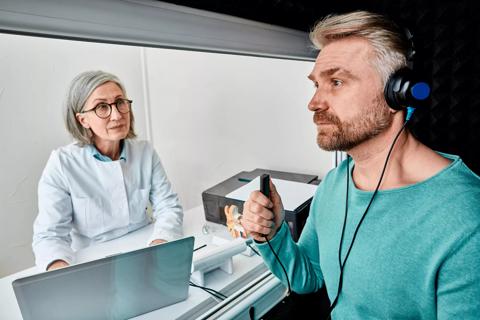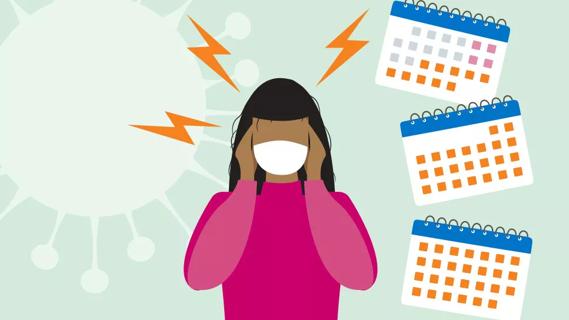The short answer from a pulmonologist

A: People respond or react to diseases in different ways. It’s not uncommon, especially with older patients. When elderly people get an infection, it’s possible for them to become confused. This is something that we see a lot, especially when someone is admitted to the hospital. In some of these cases, it’s not the infection affecting the brain. It’s just how the brain responds to the presence of an infection. Sometimes, confusion can be the result of a urinary tract infection or another medical condition. When this happens, we’ll evaluate the patient for signs of meningitis or an infection that could be affecting the central nervous system.
Cleveland Clinic is a non-profit academic medical center. Advertising on our site helps support our mission. We do not endorse non-Cleveland Clinic products or services. Policy
The dizziness that’s been associated with the virus can be a result of dehydration. When someone has a fever, they actually lose a lot of water just from the fever itself. Some people come to the hospital with infections and they’re actually very dehydrated. So, one of the first things that they need is an IV of fluids.
One coronavirus symptom that has been more common is the loss of the sense of smell. This signifies that the infection has caused inflammation in the nerve endings inside of the nose that are responsible for our sense of smell. But again, the major things that people should look for are the common signs like cough and fever. Not everyone will experience loss of smell, but not experiencing it doesn’t mean that you don’t have the virus.
— Pulmonologist Humberto Choi, MD.
Learn more about our editorial process.

COVID-19 may be associated with tinnitus, but research is still ongoing

The short answer: It’s complicated, but the basic care precautions still prevail, like washing your hands and isolating if you’re sick

They can feel like a typical headache or a migraine headache, but the pain can last for weeks to months

Any large social gathering — from a family birthday party to an indoor music concert — has the potential to spread serious infection

It’s important to connect with a healthcare provider, get quality sleep and balance your activities with your energy levels

Symptoms can overlap and be hard to distinguish, but there are some telltale differences

Just like the flu, COVID-19 will continue to evolve every year

It’s best to treat flu-like symptoms as if you have COVID-19

Your metabolism may torch 1,300 to 2,000 calories daily with no activity

A gentle touch in all the right places may help drain your sinuses